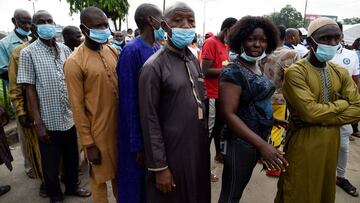Nigerian health workers end strike although demands not met
Nigerian health workers, who have been on strike since last week, called off their action without clarifying their reasons although the government hasn't yet met their demands.

Nigerian health workers who started a seven-day warning strike led by The Joint Health Service Unions (JOHESU) last week demanding better working conditions - including the provision hazard and inducement allowances - returned to work. This despite their demands not having been met.
JOHESU had earlier warned they would go on a week-long strike as an initial step, and in the case that their demands hadn't been met, they would continue their action. Health workers belonging to JOHESU, however, suspended their strike on Monday and returned to doing their jobs.
The union released a statement late on Sunday under the title "suspension of seven day warning strike," they said. "The next line of action would be decided in due course by the expanded National Executive Council of JOHESU."
Labour Minister Chris Ngige called on health workers earlier to suspend their strike and continue their negotiations with the government that had started earlier but hadn't produced a positive outcome which led the union to hold its strike.
The minister also described the strike as "illegal" and a "breach of the International Labour Organisation Principles and Conventions on Strike and sec. 18 of the Trades Disputes Act, Cap T8, Laws of the Federation of Nigeria, 2004”.
Related stories
Strikes among health workers are relatively common nowadays in Nigeria, with the country having also witnessed two strikes held by resident doctors this year who demanded better pay and working conditions.
Nigeria has reported a total of 57,242 confirmed Covid-19 infections and 11,098 related deaths.

